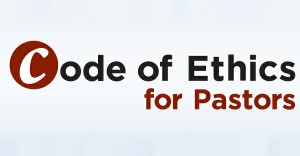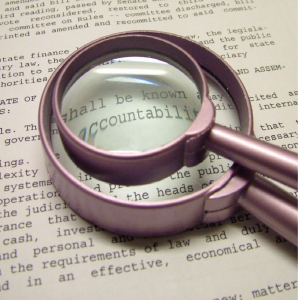Pastor’s Code of Ethics
 How should pastors, elders, shepherds, and church leaders behave? Do pastors need a code of ethics?
How should pastors, elders, shepherds, and church leaders behave? Do pastors need a code of ethics?
Code of Ethics for Pastors (CEP). Over 18 months, through a taskforce that included ethicists, pastors, editors and denominational leaders, the NAE (National Association of Evangelicals) developed and adopted the NAE CEP on Mar 8, 2012. The CEP is a 4 page document that can be read, downloaded and signed here. Notable pastors who have signed it are Rick Warren, Bill Hybels, Tim Keller, Max Lucado, etc.
The 5 headings of the CEP are:
- Pursue Integrity.
- Be Trustworthy.
- Seek Purity.
- Embrace Accountability.
- Facilitate Fairness.
How have we done? As I read the CEP, I would say that UBF pastors, chapter directors, and elders have generally done well. No leader is perfect or sinless. They/we all have blind spots, cultural biases, and some degree of pride, which is our common curse. But UBF leaders do want to exalt Christ, give their hearts to studying, preaching and teaching the Bible as of utmost importance, and lead others sacrificially with purity of heart. There are countless stories of UBF leaders who have lived honorable and God exulting lives for decades. This is not to say that they have not said, done and made decisions that were “sinful,” showing favoritism, inward focused, clandestine, and questionable. After all, all our leaders are exactly like us in that they do actually sin in real ways!
How has our founder done? I (and others) have commented on some deficiencies of UBF founder Samuel Lee. Yet my ultimate recollection of knowing Lee for 22 years is that he is a genuinely loving man who is transformed by God, who sacrificially loves Jesus and his kingdom, and is a man of faith and industry. Yet some of his actions were questionable and would not stand up to these CEP, especially in reference to accountability and transparency, which I attribute to his authoritarian leadership stemming from a culture steeped in hierarchy and “spiritual order.” Such authoritarianism is what we in UBF are continuing to address, discuss, and rectify.
 Accountability and Transparency. How might this code of ethics be helpful to UBF? #4 is “embrace accountability.” Without a doubt, UBF leaders have tended not to be accountable, especially to those who are younger and junior to them, because of our longstanding culture of hierarchy. Shepherds (and leaders) have tended not to be accountable to sheep, while expecting sheep to always be accountable to them. Hierarchy and a lack of accountability has resulted in suboptimal confession of sin, a reluctance to sincerely apologize, and inadequate transparency among some leaders, resulting in well articulated grievances.
Accountability and Transparency. How might this code of ethics be helpful to UBF? #4 is “embrace accountability.” Without a doubt, UBF leaders have tended not to be accountable, especially to those who are younger and junior to them, because of our longstanding culture of hierarchy. Shepherds (and leaders) have tended not to be accountable to sheep, while expecting sheep to always be accountable to them. Hierarchy and a lack of accountability has resulted in suboptimal confession of sin, a reluctance to sincerely apologize, and inadequate transparency among some leaders, resulting in well articulated grievances.
Fairness and Equality. #5 is “facilitate fairness.” Sinners show favoritism. I “favor” my 4 kids over other people’s kids. I wish I didn’t. But I do. Likewise, leaders tend to favor those who do not question them. But the church is a kingdom of priests and a brotherhood of believers. Being made in God’s image, we expect justice, fairness and equality among ourselves. A sense of fairness and equality in the church will be greatly enhanced with increased accountability, transparency, dialogue, and humble confession of sin.
Do read the 4 page code of ethics. Do offer comments as to how UBF may improve in our ethical practices and standards.

I mean to say much of this with respect. I think many leaders and pastors can learn from their sheep. I think they need to be more open-minded about trying to understand the sheep from his/her perspective. Listening here is the key. I am a shepherd myself and I know it is difficult to accept mistakes and listen to younger students. Yet, I realized that if God uses a donkey to speak to people, will he not also use children, those who are younger in faith?
Point well taken, Joseph. There is surely no reason why leaders and pastors should not learn from and listen to their sheep (Jas 1:19).
Humility is so easy to impose on others (1 Pet 5:5), but hard to practice and apply to ourselves (1 Pet 5:6). The older I get, the more I know that I need to die to my pride that comes from aging, as though I have some extra clout for being older!
They are not your sheep, they are God’s sheep.
kl_ has an important point here. It is one of the fundamental misconceptions of UBF that they consider people to be “their” sheep. We should stop using such language. The wrong language, like calling your spouse your “coworker” or speaking of people as “your” sheep, makes people think in wrong ways. Please consider 1Pt 5:2 again: “Be shepherds of *God’s* flock.” Peter did not write “Be shepherds of *your* flock.”
I’m not sure if I posted this relevant link already: http://exteammembers.blogspot.de/2008/12/fallacy-of-personal-pastors.html
Thanks, Kl_, Chris, For sure, we in UBF should stop saying “my sheep” or “your sheep.”
Not only should we stop saying it, but the far “harder” aspect is to not feel it in one’s heart as though the shepherd has some “rights” and control over the sheep’s life and future.
Someone told me recently that some shepherds and missionaries feel strongly that their sheep should be their sheep all their life! Wow.
Ben, do you know what prompted NAE to do this? The pastors who signed seem, as far as I know, to be well known for their integrity and ethics. It’s the ones who didn’t (or wouldn’t) sign that we ought to worry about.
Having read the document, I think it would be easy for pastors who have engaged in unethical or authoritarian behavior to believe that they are adhering to it already. The language is non-specific. What people need, I think, is actual stories and examples of unethical behavior that hit close to home. Then they can begin to understand what the words of the statement actually mean.
Thanks, Joe. Yes, when I read the CEP, I felt that the language was very broad and non-specific, and quite easy to conclude, “Yeah, I do all of that already. I’m very ethical.”
Hopefully, people will share their stories, and provide insight from both sides: the pastor and the congregation (the shepherd and the sheep).
Pastors have tended to “side with” their fellow pastor, while refusing to truly listen to allegations against them, which is unfortunate.
Members who have experienced unethical practices may tend to “pile it on” and generalize it to everyone in UBF.
With regard to sin, both leaders and members are like filthy rags (Isa 64:6) before God. No one should dismiss another person. No one should “take the high ground” (for only God in on the high ground), as though such discussion is not worthy of them.
Like God who humbled and incarnated himself unto death, we may truly welcome (love and forgive) each other, as we say to each other, “Come now, let us reason together” (Isa 1:18).
It’s quite refreshing to hear these seasoned Christian leaders confess quite movingly about their shortcomings (“ethical” miscues) in the first 10 min: http://www.youtube.com/watch?v=JbuRSTlO-3c&feature=related
Founder’s Day violates the pursuit of integrity. What about the book of Acts? If there is a Founder’s Day it should pay homage to Peter who it was said, on this rock I will build my church. Or Founder’s Day should be in honor of Christ who is the head of the Church. Founder’s Day is an abomination and mockery to God. All glory and honor to God.
Then again it is important to honor your mother and father so I am wrong its not all bad, just weird that it takes a full service to do.
Found this article on Christianity Today on why the NAE drafted a code of ethics:
http://www.ubfriends.org/2012/06/29/pastors-code-of-ethics/
It was motivated in part by rampant plagiarism and use of pornography.
Joe, I also wonder if it had to do with the whole Ted Haggard scandal several years ago. He was the president of the NAE at the time when that happened.
Thanks, Darren. I forgot about Ted Haggard. Perhaps, each church’s need for a pastor’s code of ethics would be different and with different unique particulars.
Hi Joe, your link was back to this article, rather than the CT article.
Sorry! Here’s the link.
http://www.christianitytoday.com/ct/2012/juneweb-only/nae-clergy-ethics-code.html
This week someone from Canada made a rather shocking statement on the ubf Wikipedia page:
“However, as of 2014, UBF is no longer a member of the N.A.E.”
Does anyone know if this is true? I am planning on removing this from the article because there is no proper citation that says this.
Brian, I found out from a reliable source that this is NOT true. UBF is still a member of the NAE.
OK Ben, I’m removing the link from the Wikipedia.
And yes, anyone can change an unlocked Wikipedia entry even anonymously. The Wikipedians get their feathers ruffled when that happens, usually. I just removed the false statement.